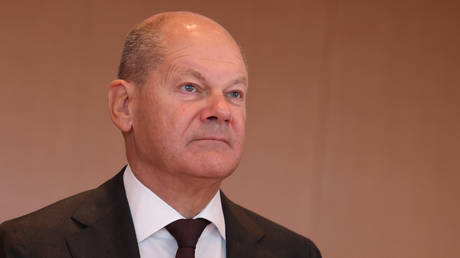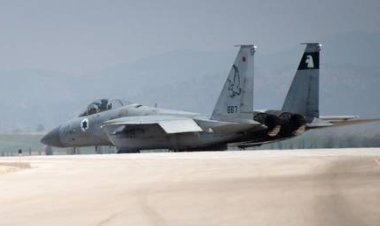Scholz of Germany Expresses Hope for Ukraine Conflict Resolution by 2025
Olaf Scholz expresses optimism for achieving peace between Russia and Ukraine within this year and emphasizes the importance of exploring diplomatic avenues.

While addressing a campaign gathering in Wolfsburg on Friday, Scholz noted Germany’s commitment to preventing the war from escalating, stating, “every effort is made to ensure that this war… does not become a war between Russia and NATO.”
The chancellor reiterated his stance against providing Ukraine with long-range missiles capable of reaching deep into Russian territory, arguing that this would “not contribute to being a peacekeeping measure from Germany now.” He acknowledged Germany’s substantial support for Ukraine, highlighting that it is the largest European backer and the second largest globally, although he emphasized that Germany would not agree to every suggestion made regarding aid.
Importantly, Scholz asserted that any discussions about peace must take place with full consideration of Ukrainian and European voices, insisting that such decisions should not be made “above the heads of the Ukrainians…above the heads of the Europeans.”
Scholz has faced criticism from his foreign minister, Annalena Baerbock, for his reluctance to endorse an additional €3 billion aid package for Ukraine. She argued that his stance contradicts the need for “real responsibility for securing Europe’s peace and freedom,” suggesting it reflects a “national perspective” instead. Scholz has called for the funding of this aid to be sourced through new debt rather than reductions in social spending.
The disagreement arises in the context of impending snap elections scheduled for February, following a failed vote of confidence initiated by Scholz in December. His coalition government, formed by the Social Democratic Party and the Greens, has been grappling with divisions over economic policy and budgetary issues, particularly regarding the level of financial and military aid to Ukraine.
Ukrainian President Volodymyr Zelensky has repeatedly expressed his frustration with Scholz, perceiving him as indecisive about delivering more military support. On the other hand, Russia has consistently condemned Western arms deliveries to Ukraine, with President Vladimir Putin denouncing such actions in June as a “serious and dangerous step” that only intensifies the conflict.
Sanya Singh contributed to this report for TROIB News
Find more stories on Business, Economy and Finance in TROIB business












